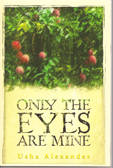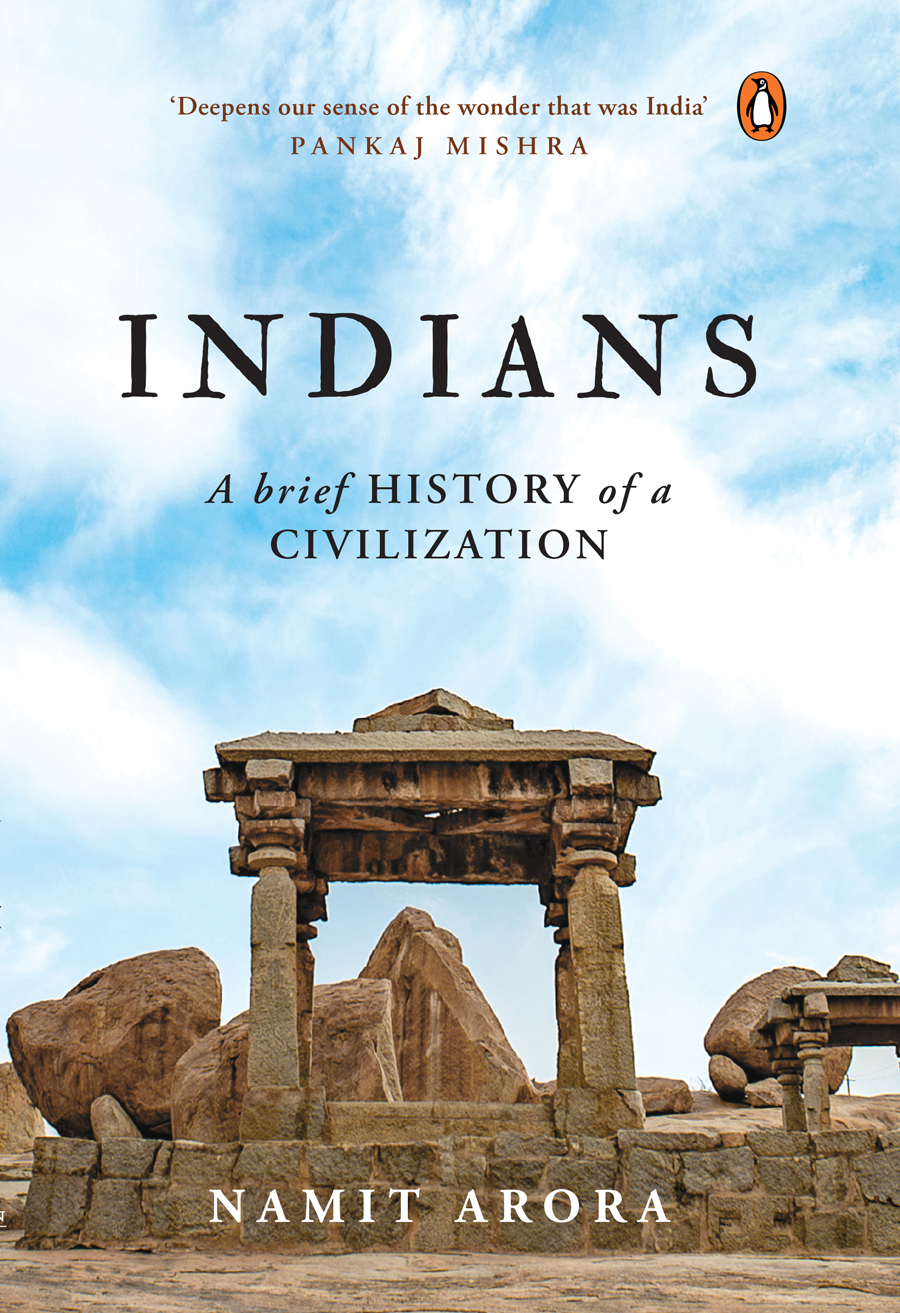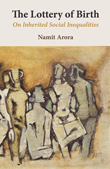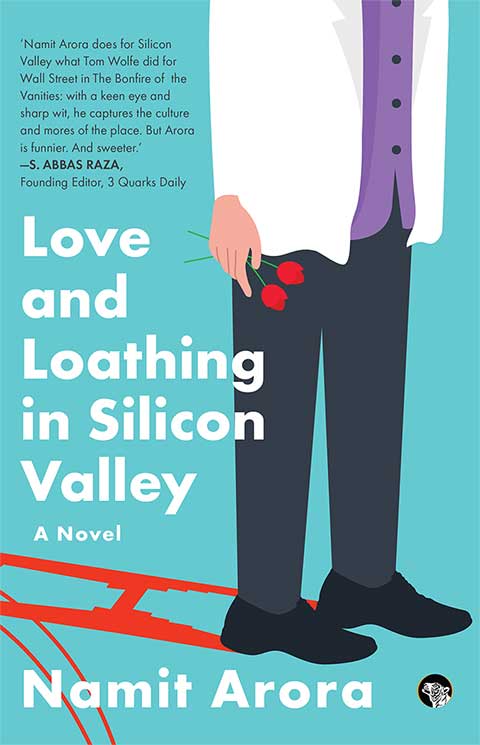| Index of articles from the Blog |
| Animals |
| Anthropology & Archaeology |
| Art & Cinema |
| Biography |
| Books & Authors |
| Culture |
| Economics |
| Environment |
| Fiction & Poetry |
| History |
| Humor |
| Justice |
| Philosophy |
| Photography |
| Politics |
| Religion |
| Science |
| Travel |
Books by
Books by
|
|
Decolonizing My Mind By Namit Arora | Feb 2011 | Comments |
On English in India and the linguistic hierarchies of colonized minds
When it comes to colonial quests, military might is what breaches the metaphorical Gates of Damascus. Regime change follows. Thereafter, the most efficient and durable means of colonial control happens via culture. Culture holds the keys to how a group sees itself and knows its place in the world. As Ngugi wa Thiong’o—Kenyan novelist, professor, and author of Decolonizing the Mind—has pointed out, ‘Economic and political control can never be complete or effective without mental control. To control a people’s culture is to control their tools of self-definition in relationship to others.’ [1] When done right, the native comes to elevate and mimic his master’s ways, to see his own culture as inferior, and to look down on his past as ‘a wasteland of non-achievement’. He begins to defer to the colonizer’s ideas on fundamental things like beauty, art, and politics. In time, writes Ngugi, he begins to understand himself and his culture through the eyes of the colonizer—using the latter’s concepts, categories, and judgments. Before too long, he turns into a proxy for his master: colonialism with a native face. How does the colonizer gain such control? The easiest method, explains Ngugi, is to actively spread his language among the natives, and to simultaneously denigrate the language of the natives as crude and unfit for proper education. It is amazing how much mileage this delivers. Simply make the colonizer’s language the lingua franca of imperial administration, accord prestige and upward mobility to those who learn it in colonial schools, and before too long, there is a feeding frenzy among a native minority. This has been the way of the great colonialists of history, such as the Arabs in the 7-8th centuries, the British and the French in the 19th, and the Russians with the Baltic States in the 20th. Ngugi writes, For colonialism this involved two aspects of the same process: the destruction or the deliberate undervaluing of a people’s culture, their art, dances, religions, history, geography, education, orature, and literature, and the conscious elevation of the language of the colonizer. The domination of a people’s language by the language of the colonizing nations was crucial to the domination of the mental universe of the colonized.
Language is not a neutral vessel for conveying the ideas, beliefs, and values that constitute culture. Nor is it a mere tool for describing the world as it truly is—no language can be said to describe the world as it truly is. To use a language—any language—is to interpret the world in a particular way. Shared ways of seeing, or culture, emerge through the shared use of language. In other words, culture is organically intertwined with language, evolving together to create a unique collective sensibility. No wonder language is so central to our identity and why so many political divisions have linguistic borders. Indeed, language profoundly shapes the way its incoming speakers think (this may be partly why it even makes sense to speak of an ‘Anglophone culture’), an idea that now finds support among cognitive scientists. Bilingual folks think differently when they immerse themselves in different languages. [3]
Colonial Languages and African Literature In the late 19th and 20th century Africa, colonial regimes began mandating the exclusive use of European languages in missionary and state supported schools. The language of an African child’s formal education soon became foreign, writes Ngugi. ‘The language of books he read was foreign. The language of his conceptualization was foreign. Thought, in him, took the visible form of a foreign language.’ In Kenya, Ngugi himself studied every subject in English at school but spoke Gikuyu at home—a language spoken by more people than speakers of Danish or Croatian. ‘There was often not the slightest relationship between [English], and the world of his immediate environment in the family and the community.’ Indeed, it was even worse: One of the most humiliating experiences was to be caught speaking [Gikuyu] in the vicinity of the school. The culprit was given corporal punishment — three to five strokes of the cane on bare buttocks — or was made to carry a metal plate around his neck with inscriptions such as I AM STUPID or I AM A DONKEY. Sometimes the culprits were fined money they could hardly afford. And how did the teachers catch the culprits? A button was initially given to one pupil who was supposed to hand it over to whoever was caught speaking his mother tongue. Whoever had the button at the end of the day would sing who had given it to him and the ensuing process would bring out all the culprits of the day. The children were turned into witch-hunters and in the process were being taught the lucrative value of being a traitor to one’s immediate community. Ngugi, born into a large peasant family, was baptized James Ngugi and educated in English, a language that evolved outside Africa, shaped by and organically intertwined with a very different cultural milieu. It had evolved to convey different ideas of self, individual, community, nature, time, beauty, loyalty, respect, kinship terms, humor, idioms, gender roles, animals, and so much else from a particular ontology. Moreover, it was alien to the language-world of Ngugi’s daily life in Kenya—of the streets, boyhood fights, swear words, commerce, labor, family, love, food, festivals, geography, plants, and more. Not only that, his own language was ‘associated in his impressionable mind with low status, humiliation, corporal punishment, slow-footed intelligence’ and worse. Ngugi wrote that if the bullet was the means of physical subjugation, language was the means of spiritual subjugation of the African child, resulting ‘in the dissociation of the sensibility of that child from his natural and social environment, what we might call colonial alienation.’ [7] What then to make of literature written in European languages by Africans? What does it mean to write a realistic novel in which African peasants and factory workers speak English or French? Can a writer, his formal education entirely in English, capture in it the tenor and rhythms of ordinary African life? What tradition of the English language novel does the African writer look up to? Ngugi argues for classifying their work— including that of talented writers like Achebe, Soyinka, Armah, Ousmane, and others—not as African literature but as Afro-European literature, i.e., ‘literature written by Africans in European languages.’
So where did this viewpoint lead Ngugi? Though he wrote his early literary works in English, he now writes all his creative works only in Gikuyu and then translates them into English (he also continues to speak in English as before, not the least because he was forced into exile from Kenya). He made this switch in mid-career, soon after his great polemic, Decolonizing the Mind, came out in 1986. He recounts in it a story from his early career, when he attended the African Writers Conference in Kampala, which invited only authors writing in English. ‘What is African Literature?’ was a much-debated question at the conference, about which he wrote: The fact is that all of us who opted for European languages—the conference participants and the generation that followed them—accepted that fatalistic logic [of the unassailable position of English in our literature] to a greater or lesser degree. We were guided by it and the only question which preoccupied us was how best to make the borrowed tongues carry the weight of our African experience by, for instance, making them ‘prey’ on African proverbs and other peculiarities of African speech and folklore.
English as a Language of Indian Literature English also came to India through colonization. By the early 19th century, it had emerged as the new language of power and personal advancement. Among the first Indians to embrace it were the Bengali Brahmins of Calcutta. They, as well as other ‘high caste and/or upper class Hindu men’, as the scholar Alok K. Mukherjee has argued, took to English largely ‘because English was a tool of power and domination—individually for them and collectively for the groups to which they belonged. It provided them … the social, cultural, and economic capitals with which they maintained that domination.’[4] A British document from 1822, years before Macaulay’s statement, mentions ‘that many of the leading Hindoos [of Calcutta] were desirous of forming an establishment for the education of their children in a liberal manner, as practiced by Europeans of condition’.[5] Moreover, adds Mukherjee, ‘The idea that English language and European knowledge was needed to revive Hindu society—or, more precisely, aryadharma—was a central consideration for the Indian proponents of English education in the nineteenth century’. So it wasn’t as simple as the British imposing their language by diktat on India; their push was met by a reciprocal pull by a class of Indians. Some scholars have argued that the great prominence and prestige attained by this class of Indians not only helped spread Brahminism but also their new construct of ‘Hinduism’, an offshoot of which would later produce Hindutva. But that is a topic for another essay.
By the time I went to school, English had already acquired enormous practical benefits. Like a goddess, it offered new visions to converts like me, opened new doors, gave me access to a more dominant culture and a global economy where English proficiency is an undeniable asset. The caste elites have understood this for generations and have used English as a tool to further entrench their power and dominance. The subaltern classes are only now using the same playbook to catch up, and understandably so! But my point here is neither about the many practical benefits of English, nor to lament the course of history—who knows what an alternate history might have been? Rather it is to recall the politics surrounding the arrival and the spread of English in the colonies, to reflect on the reach and the world of the Indian writer in English, and—for the sake of a more complete accounting—to also consider the costs that our attitude to English, its parent culture and its speakers, continues to extract from us. Moreover, following Ngugi on African writing in English, should we not also wonder whether Indian writing in English qualifies as Indian literature or as Indo-European literature (i.e., literature written by Indians in a European language), with Indian literature referring only to works in languages with long and pervasive roots in Indian cultures? Some will shake their heads in disagreement and argue that English is already an Indian language. They will wonder why people keep casting doubts about its status again and again. They will cite its common use in the media, universities, billboards, signage, product labels, various application forms, social media, and so on. In a way they would be right, but this is not the ‘language of literature’ that Ngugi alludes to. Let’s explore whether English qualifies as an Indian language by looking at it in two distinct ways: (a) As a language of opportunities and lingua franca:
(b) As a language of a people's literature:
Hierarchy and Language Such reflection also illuminates many contemporary trends in the Subcontinent. For instance, the deeply ingrained hierarchies of language and literary culture that Indian elites subscribe to even sixty years after independence. Oh, how we crave Anglo-American recognition for our writing on India and let it drive our sense of literary merit! If target markets and economics explained all, the Danes and the Dutch, quite proficient in English, would have similar attitudes. There is something else going on with the Indian literati—given how hierarchy bound we Indians are, it is as if we accord a higher caste to the British and subconsciously elevate and mimic their literary culture. It is one thing to admire and be inspired by other literary cultures—an entirely laudable thing—but our attitude is one of deference, lacking the self-confidence of equals. I cited the Dutch and the Danes because they speak English yet were not colonized, and consequently do not suffer from "colonial alienation". They do not exhibit, as Indians do, the deference, insecurity, inferiority complex, and look-to-Britain-and-the-U.S.-for-validation-and-yardsticks (that said, there are signs that indigenous yardsticks may be emerging). Unlike the former, the Indians accord a privileged status to English, turning it into a pivotal marker of a class hierarchy. It’s true—we have arranged even languages into a hierarchy, with English sitting atop like the Brahmin and our attitude to indigenous languages Brahminical (with accents and dialects providing more ways of filling out the hierarchy). Writers and speakers of English are commonly seen as more sophisticated and are granted more respect and attention. If this is not mental colonization, what is? We are far from achieving intellectual independence. Nothing like a Booker prize, reviews, endorsements, and fat book deals in the Anglophone West to turn our heads. Indian novels that ‘make it’ abroad are then taken seriously in India—not vice-versa. Do we grant the same cachet to books that win Sahitya Akademi or Jnanpith awards? Or crave translations of our best non-English books? And we have not even considered the mental colonization in the terrain of popular culture, such as in our dominant ideals of beauty. But wait, says a part of me. How can it be otherwise? The culture that brought us English and came to dominate us had greater power tied to its claim to greater knowledge. So long as this relationship holds in our minds, and we look up to that culture for our self-definition and direction, much else will remain too, including our writers’ insecurities and our elites’ colonial mindsets. I too am caught in its vortex. As an individual, perhaps the best approach to decolonizing my own mind is to be acutely aware of my predicament, interrogate my own linguistic and cultural hierarchies, and invite others to do the same. This is certainly not to say that our literary artists ought to jettison English and return to native languages, as Ngugi did for his creative works (which he then translated from Gikuyu to English). For many, that ship has already sailed and there is no going back. Even if one could go back, it’s not an unqualified “better path” for all. Quite often, those who advocate this path are linguistic and cultural chauvinists best avoided like the plague. On the contrary, this is to say that a key attribute of being modern is to try and understand how we came to be who we are, and to cultivate a truly modern, humanistic self—one that sees all humans as equal in status, participates in a creative, self-confident literary culture, and doesn’t feverishly seek external validation or erect new hierarchies around language. No language in itself is a problem, our Brahminical approach to it is. To decolonize is to also begin to see the politics of received categories we so unselfconsciously use to understand and judge ourselves (this of course parallels the subalterns’ relationship to their ‘internal colonization’ by Brahminical knowledge), and to explore ways of moving beyond and seeing things afresh. Where else should this start if not with our literary and cultural elites who have the fewest excuses and the longest exposure to modernity? Notes:
This article has been updated since its first appearance on 3 Quarks Daily. |
|
Designed in collaboration with Vitalect, Inc. All rights reserved. |
|








